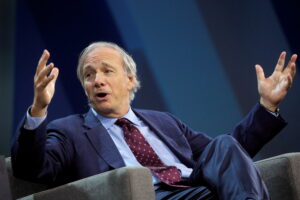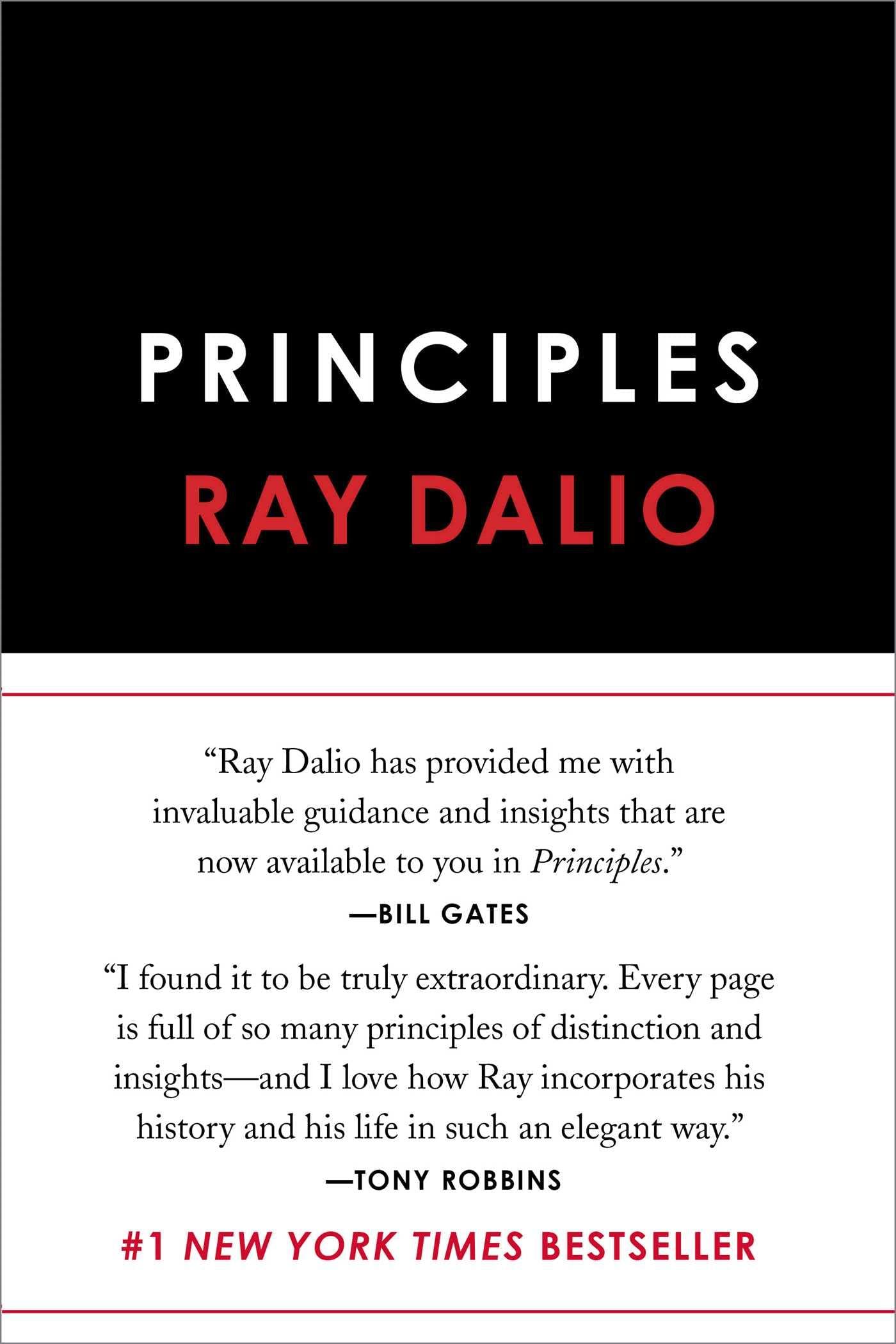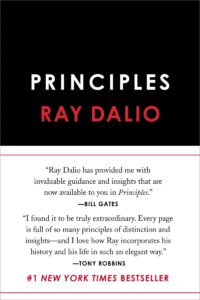Editor’s note: I wrote this in February 2022 in the San Antonio Express News, as part of my series on “Billionaire Philosopher Kings.”
Ray Dalio is the founder of the world’s biggest hedge fund, Bridgewater. He is personally worth an estimated $15.7 billion. With his 2017 book Principles he aspires to the role of a great billionaire philosopher king, the kind I am specifically interested in analyzing in 2022.
Unlike philosopher king Peter Thiel who I wrote about recently, Dalio is not known for his political campaign funding, nor for supporting radical provocateurs with his billions.
Nevertheless, the power of a billionaire in our society should leave all of us cautious. Dalio intends to influence how we organize companies, our daily life, and our work life. The book presents three sections, a sort-of biographical “Where I’m Coming From,” a life-instructional part called “Life Principles,” and the managerial-oriented “Work Principles.”
Here are the most important points from Principles, consolidated for your convenience and consideration:
Write down your thought processes and guiding ideas, all the better to return and refine them as you collect data and experiences. Seek truth relentlessly. Be radically transparent in your decision-making. Be radically open-minded. Use computers to enhance your thinking. Analyze your business, yourself, and the world like a machine that can be broken into component parts. Identify weaknesses in the machine and address them forthrightly. Embrace setbacks and pain as part of the process. Use these as learning opportunities. Get better next time. Forget trying to look good or please people, try instead to achieve the goal you aim at. Don’t try to come up with the best idea on your own, instead come up with the best idea using all available sources. Seek out people who disagree with you, to test your own concepts and to learn. Be willing to fire people even if you like them. Suppress emotions and appeal to reason, in your thought process as well as in your relationships with people.
Time and again Dalio hammers on the idea of radically seeking truth and transparency no matter the consequences, while organizing your life and work like a machine that can be fixed through analysis. Emotions, he emphasizes, need to be suppressed to allow reason and truth to shine through. Basically, be like Spock. (My words, not Dalio’s.)These sound pretty fine and useful to aim for if you want to build a hedge fund.
But here’s the thing. There’s something odd about reading Dalio’s own history of Bridgewater and of himself. He is radically untransparent. Opacity and elision are the rules rather than the exception. I understand he’s protecting colleagues and employees by not spilling the beans. But the stories of conflict within Bridgewater generally do not get fleshed out enough to even seem realistic.
With one big exception. He summarizes a memo his deputies wrote him in 1993, at a crucial time in his firm’s development. “Ray sometimes says or does things to employees which makes them feel incompetent, unnecessary, humiliated, over-whelmed, belittled, oppressed, or otherwise bad. The odds of this happening rise when Ray is under stress. At these times, his words and actions toward others create animosity toward him and leave a lasting impression. The impact of this is that people are demotivated rather than motivated.”

That part was clear. Indeed, it’s the most transparent part of a book which otherwise does not seem transparent. We get an idea of what it would be like to work for Ray Dalio, from his closest colleagues.
Here’s another idea I doubt billionaire philosopher king Ray Dalio is giving enough credit to. To the wealthy business owner, “speaking your truth,” “radical transparency,” and “leaning into conflict to address problems early” sound like great business bromides.
But I worked on Wall Street long enough to know that being on the receiving end of your boss “speaking his direct truth” involves spittle-flecked f-bombs, smashing telephones and telling subordinates what f-ing morons they are.
That is to say, radical transparency is experienced differently, depending on who’s giving it, and who’s receiving it. I do not believe – now I’m speaking realistically about a world of vastly unequal power dynamics at work, in politics, in society – that radical truthfulness works the way he says it does. Humans are not machines to be fixed in this way. Ray Dalio’s ability to deliver radical truth bombs will not be met by his subordinate’s equal ability to do the same. To think otherwise is to embrace a curious understanding of human nature.
The business press wrote a lot in 2017 about Bridgewater’s attempt to replace Dalio with the next generation of hedge fund leadership. It did not go well. I assume it did not go well because radical transparency between everybody is really weird. It’s not human. People who write about the corporate culture of Bridgewater usually say: This hedge fund is really, really weird.
The larger issue is our willingness to convey philosopher king status to people who – while conventionally successful in a capital-worshiping society – are not necessarily those who should be allowed to dictate the principles for our lives. People who we should not emulate. People who would create organizations and a society as a bizarre distillation of their personal identity fantasy.
I’m guessing that if I worked at Bridgewater and expressed these particular truths this particular way, I’d be sent to workplace Siberia for further study of Dalio’s little black book until I saw the truth, or I left the company.
Dalio’s Principles makes me think explicitly of Mao’s Little Red Book. We should always be afraid and skeptical of powerful people – in their own lifetimes – authoring books that purport to direct and optimize humanity.
Self-made billionaires get to write their “here’s how I built it” book, and that’s also fine. When we hold them up as our philosopher kings for shaping society and human relations, that’s when it’s not fine.
It is too soon to adopt Ray Dalio’s Principles as the bible for human relations. It is also too weird.
So let me be as radically transparent as I can be, Ray: You, your book, and your creepy Spock-inspired principles of rationality lack emotional intelligence.
A version of this post ran in the San Antonio Express News and Houston Chronicle.
See all Book Reviews on Bankers Anonymous
Post read (159) times.






